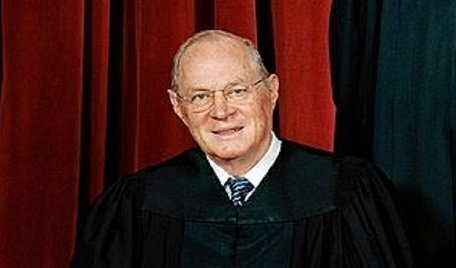As 2018 winds now, it was another memorable year for the Supreme Court. Here’s a look at some of the major cases decided by the Justices this year, and at a landmark change on the bench.
 On June 27, 2018, after the Court concluded its decision schedule, Associate Justice Anthony Kennedy announced his retirement, ending 30 years’ of service. Justice Kennedy was the swing vote at the Court in recent years. The fight over his replacement, Brett Kavanaugh, dominated much of the news cycle about the Court until Kavanaugh’s confirmation on October 6.
On June 27, 2018, after the Court concluded its decision schedule, Associate Justice Anthony Kennedy announced his retirement, ending 30 years’ of service. Justice Kennedy was the swing vote at the Court in recent years. The fight over his replacement, Brett Kavanaugh, dominated much of the news cycle about the Court until Kavanaugh’s confirmation on October 6.
Justice Kennedy authored two significant decisions from the 2017 term, which concluded on September 30, 2018.
In Masterpiece Cakeshop, the Justices tried to decide if Colorado's public accommodations law violated the First Amendment religious rights of a cake maker who declined to make a cake for a same-sex marriage event. Instead, the ruling focused on the conduct of the Colorado Rights Commission in its initial decision in the case.
In the 7-2 decision, Justice Kennedy said that the commission incorrectly acted in its considerations that Masterpiece Cakeshop violated the Colorado Anti-Discrimination Act (or CADA). Kennedy said the baker, Jack Phillips, was “entitled to a neutral and respectful consideration of his claims in all the circumstances of the case,” but the statements of some commission officials cast doubts on the neutrality of their decision.
Also, in South Dakota v. Wayfair, the Court considered if taxes must be paid on Internet product sales. Not all states require consumers to pay taxes on Internet sales. Some Internet businesses believed a 1992 Supreme Court decision, Quill Corp. v. Heitkamp, supported an argument that states can’t force sales or use taxes on businesses that lack a physical presence in a state, and Congress was the best place to decide such taxing disputes.
In a 5-4 decision, Justice Kennedy overturned the Quill decision as inadequate for today's Internet economy. Chief Justice John Roberts in his dissent believed Congress should decide the issue.
Those certainly weren’t the only major cases in a very active Supreme Court term. In Janus v. American Federation, a divided Supreme Court said public-sector employees who don’t belong to unions can’t be forced to pay union contract-negotiating fees. In Gill v. Whitford and Benisek v. Lamone, the Court considered two questions about the process of gerrymandering, or drawing political districts to benefit candidates from a political party.
In the Gill decision, Chief Justice Roberts for a unanimous Court sent the case back to a special three-judge trial court due to a lack of standing by the plaintiffs to sue. In the Benisek case, the Court's per-curium opinion let a lower-court ruling stand that allowed elections to proceed under the state's current election map.
In Carpenter v. United States, a divided Court ruled that in general, law enforcement officers must get a court-approved warrant before they may gather data from cellphone towers showing where an individual was using a phone. In Murphy v. NCAA, the Justices were considering if the federal law that regulates sports betting in New Jersey violated the 10th Amendment’s anti-commandeering provisions. In a 7-2 majority decision, Justice Samuel Alito struck down the law as the Court’s majority took a strong stance on the 10th Amendment and states’ powers.
And in Trump v. Hawaii, the Court considered the state of Hawaii’s claim that President Donald Trump imposed an unconstitutional “Muslim ban” when he ordered strict new limits on entry into the U.S. by foreign nationals from six nations with Muslim-majority populations and if the Trump order issued in September was illegal under federal immigration laws or federal procedural rules.
In a 5-4 decision, Chief Justice Roberts upheld Trump's order barring most foreign travelers from five Mideast nations with mostly Muslim populations. “The admission and exclusion of foreign nationals is a fundamental sovereign attribute exercised by the government’s political departments largely immune from judicial control,” Roberts said. The decision also rejected a claim that the presidential order was a “Muslim ban” that unconstitutionally discriminated on the basis of religion.







